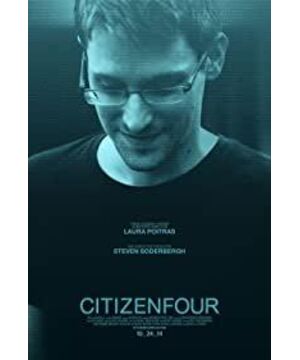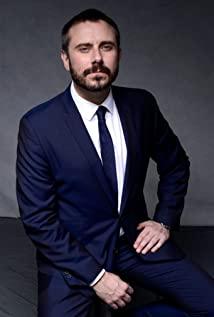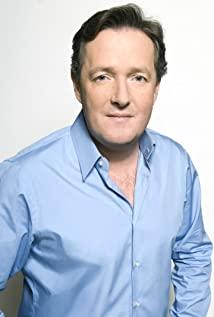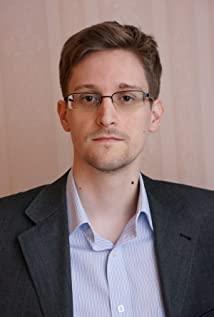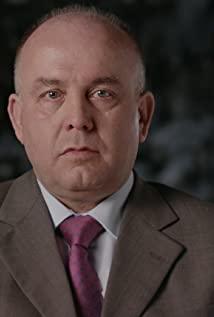Like all news events, the turmoil at Prism Gate can't escape the climax, or the short time it takes to attract public attention.
Greenwald came to Moscow to meet Snowden again. In a brightly lit room, the atmosphere seemed less tense than it had been a year ago. They wore the same light blue shirts and had the same fatigue-induced wrinkles on their faces. A new whistleblower appeared, and their courage was to be tested once again.
In order to avoid eavesdropping, Greenwald wrote down the key words of the conversation on a note, and Snowden watched tacitly, showing sarcasm or disbelief from time to time. Compared with Greenwald, who was nervous and overly serious in front of Snowden at the beginning, he was more like a spokesperson than a collaborator of Snowden. The camera is aimed at the note he torn up. In the free focus, the five letters of "POTUS" are looming, but the clear reference cannot catch the audience's mind at this moment, and the emotional support seems to be at a loss, because everything is too complicated. Snowden looked at the note, his eyes wandered, the hand on his face was finally put down, and the dark circles under his eyes became clearer. In a short while, the electric guitar rumbled and trembled, along with the scraps of paper that were cleaned up, as if to make a break with this bottomless pool, and it seemed to sink quickly in the whirlpool and it was difficult to get out.
The beauty of literary films comes from the blank space, and the beauty of documentaries comes from reality. The beauty of "The Fourth Citizen", in addition to reality, also comes from the selection of materials.
Snowden's intrepidity, Greenwald's assistance, director Laura's promotion, these elements revolve around the constant theme of defending privacy rights, facing the huge and sophisticated NSA, a small outsourcer information administrator , to stand on the front line of public opinion spontaneously for this simple appeal, in any case, it seems so just, so romantic. However, if we recall carefully with the surging electronic sound at the end of the film, in all the stories, Snowden's personal privacy has not been protected. If Snowden's behavior is to actively call the public's awareness of protecting personal privacy by sacrificing his privacy rights, then it is obvious today that behind his glorious image because of sacrificing privacy rights, the original goal of the action is far from successful. .
Identity sharing, experience sharing, location sharing on social networks is happening all the time, and it's growing by a whole other order of magnitude compared to two years ago. The hegemony of the telcos has not diminished, and people have not regained the initiative Snowden had hoped for when it comes to protecting privacy. All over the world, many organizations organize official civil organizations, and conferences are also being held continuously, but back to individuals, back to the "citizen" that Snowden originally meant, the struggle for rights is still so weak, and this is only for the development of information construction. country. In contrast, the situation in other areas is that the right to privacy is not a power at all, and no one would think of it, let alone fight for it, and those places are precisely subject to the most unscrupulous monitoring and information control.
Greenwald told a human rights conference in Chicago in 2013 that Snowden showed no signs of nervousness or anxiety during the 11 days he spent with him in Hong Kong. Snowden in the picture answers the same question when faced with questions, but his anxiety does not need to be explained, and his frequent silence seems to have betrayed himself. Greenwald did not overly question Snowden's plans, even when Snowden decided to reveal his identity, the journalist's definition of "explosive" prevailed at that instant of the conversation, and the fact On the other hand, Snowden's decision not to be a simple anonymous informant was a wise self-protection, but it was also a great test of willpower. From the very beginning, he decided to use his experience to play a big game with the official, and the official, who was not in a situation of opposition to him in his past, how ferocious would it be? Will it go to war? These unknowns are a heavy burden on anyone.
In fact, assuming we do a dispassionate empathy, governments also have privacy, and this privacy is called secrecy. When it comes to privacy, we can't wait to climb the moral high ground and claim the inviolability of sovereignty. However, in exchange for government secrets, although we generally do not overreact, we will not hesitate to give up any kindness in a specific situation, and that is the situation of privacy invasion of privacy: the government's wiretapping, investigation project invasion It may sound strange that Snowden leads a group of angry activists without realizing the government has been violated, but it is the truth. The government has no moral high ground to stand on, so it can only rely on the law, and the law can never give the "traitor" the moral high ground, which is why a group of lawyers in Berlin planned to defend Snowden for free. difficulty. If a person feels that a stranger has violated his privacy, he can naturally denounce or even sue, but if the stranger is replaced by a well-organized group (such as the US government), the difficulty of prosecution will be multiplied. At this time, only the intervention of another force can promote the development of the situation. This force is called the media. The media, an institution that stands with the people in theory, actually plays the role of centralizing discourse when reporting. While modifying the discourse of the people, it also affects a group of people who were not prepared to speak, but it does not occupy the initiative of the event. , In short, the media is more like a role of late attack, it does not have even the slightest possibility of manipulating events from the principle of judicial action. Snowden wanted to make a suicidal leak at the beginning. The suicide here is not just a suicide of the post, but also of a political suicide. He thought that the public rights could be amplified by his first friend, the media person, to compete with the government. to the point of. Obviously, he overestimated the media and underestimated the government. Because no matter where in the world, most of the time the media will be nervous because of the government, but the government will not bow because of the media. The same goes for the judiciary, where 95% politics and 5% law, as lawyer Ben Wizner of the American Civil Liberties Association put it, is desperate and true when sensitive events occur.
The film restores this weakness with facts. Under the high-definition camera, no matter how the speaker questioned or rationally exposed the unconstitutional behavior of the government in its operation, the response was always no, no, no, and you could even read the hesitation of that lie in their eyes. Even if the news media is making jokes, the talk shows are ridiculing violently, and human rights organizations are urgently discussing countermeasures, the political level will not be shaken in the slightest. The slowness of the judicial process has left a horde of professionals looking for a way out in a dead end, absurd and persistent.
Perhaps we can blame the government for its overwhelming dominance. However, when the people seek collective demands and civic will, should they reconsider whether their own power is strong enough? We look at the people around us and ourselves, and the privacy leaks are irrelevant and irrelevant to us, and sometimes we are even disinterested or even enjoy the potential risks. When we are not even aware of our privacy issues When it is time to recognize it clearly, why follow Snowden and other rights advocates to make self-righteous protests and burn this unprovoked anger?
View more about Citizenfour reviews


